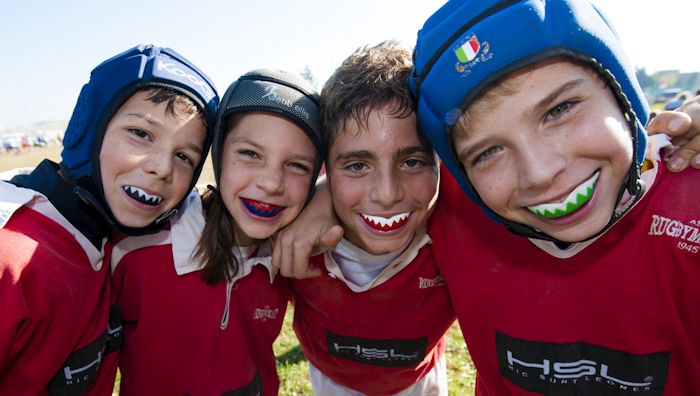
Dentist Custom Mouthguard
If you play a contact sport, and a lot of Aussies do, you may risk injuring your teeth.
Unfortunate and serious dental injuries could happen during contact sports. These sorts of injuries are often difficult to treat and might often involve a lifetime of expense.
What is a mouthguard?
A mouthguard is a thick, often spongy shield that fits over your teeth. Mouthguards are usually worn during sports and other activities that involve a high risk of impact to the face.
Why do you need a sport mouthguard?
Mouthguards can protect you from some serious sporting injuries, such as broken jaws, fractured, cracked or knocked-out teeth, cut lips and tongues.
And you don’t just have to be playing obvious contact sports like rugby union, rugby league, AFL, hockey and boxing to sustain those kinds of injuries. Even non-contact sports like cricket, basketball, netball, touch football, skateboarding and soccer, carry a real risk of accidental collision, and resulting dental trauma.
Types of Mouthguard
- Stock mouthguard:
- Preformed and ready to wear
- Cheap
- Bulky and ill-fitting
- Could make breathing difficult
- Dentists DO NOT recommend
- Boil and Bite mouthguard
- Slightly better fit than stock mouthguard
- Still bulky and ill-fitting
- Insufficient Protection
- Cost could be very similar to Custom-fitted mouthguard
- Custom-fitted mouthguard
- Individual designed
- Custom fabricated based on exact dental impression
- Good passive tight fit, possible to talk
- Provide most comfort and protection
- Streamlined and least bulky
- Could be slightly more expensive
How to look after your mouthguard?
To keep your mouthguard in tip-top working order, you’ll need to keep it out of the sun, wash it in cold water after use, keep on the supplied plastic model cast and get your dentist to make sure it’s still OK when you go in for your regular check-ups.
Only dental professionals can design and manufacture a custom-fitted mouthguard that provides adequate protection.
When it comes to kids’ mouthguards, they need to be replaced every 12 to 18 months due to the child’s growth and any new teeth that alter the fit.
Contact us today to find out more.
